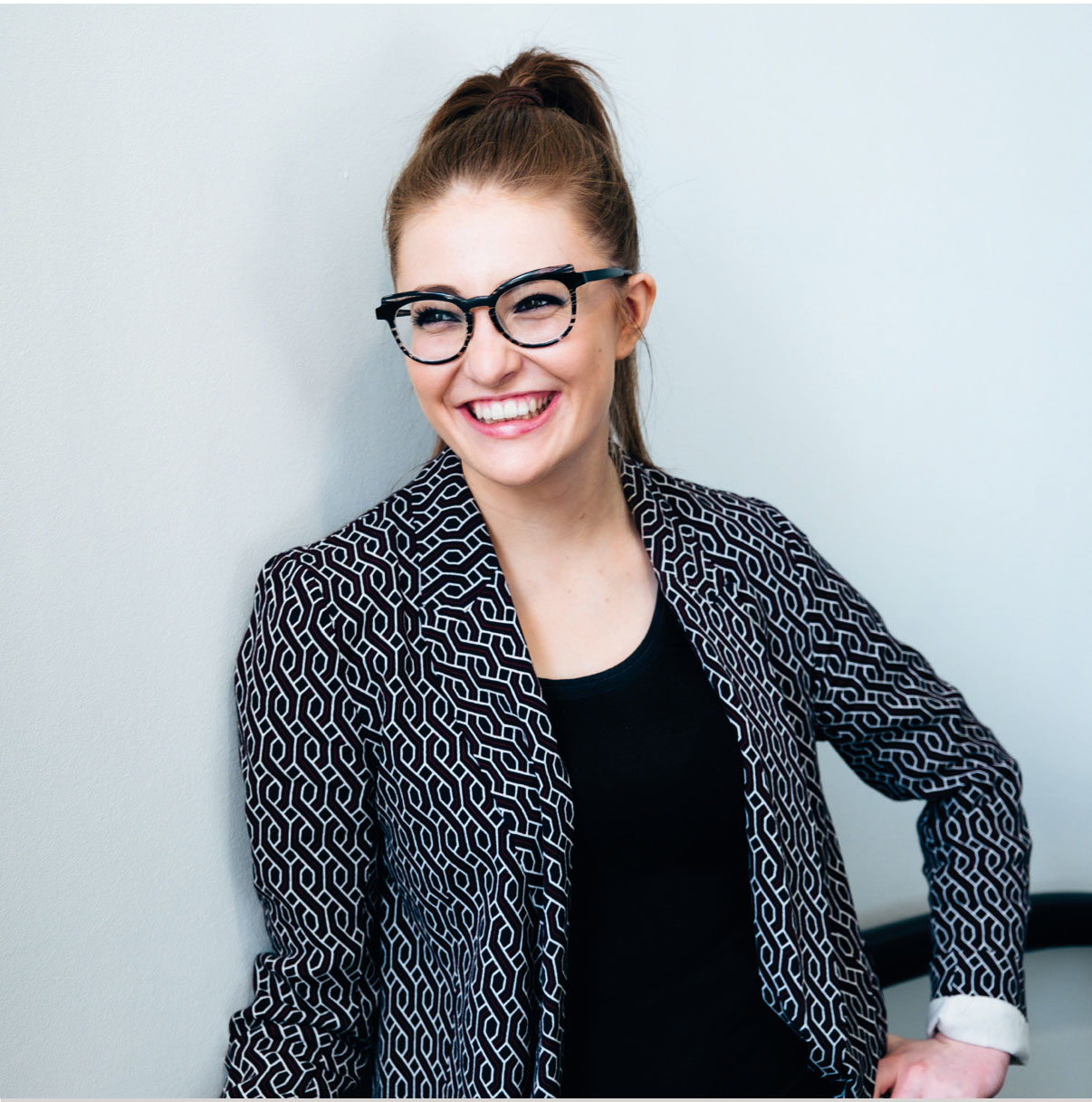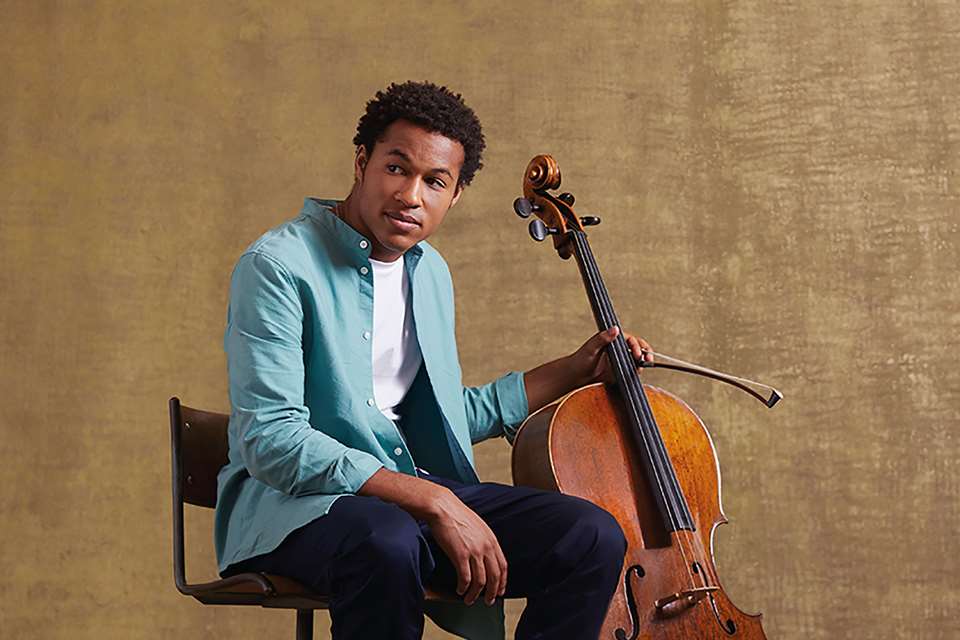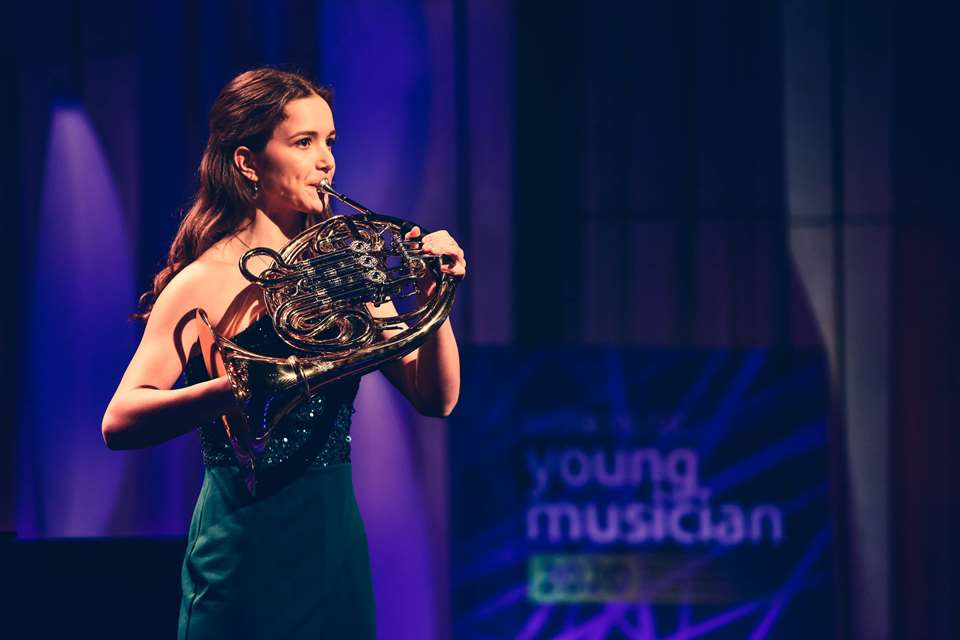Playing her part: Jess Gillam
Harriet Clifford
Wednesday, December 1, 2021
Saxophonist and presenter Jess Gillam is well and truly on a roll. On the release of her films in the London Mozart Players' ‘Spotlight On…Education’ series, Harriet Clifford meets her to find out why she does what she does
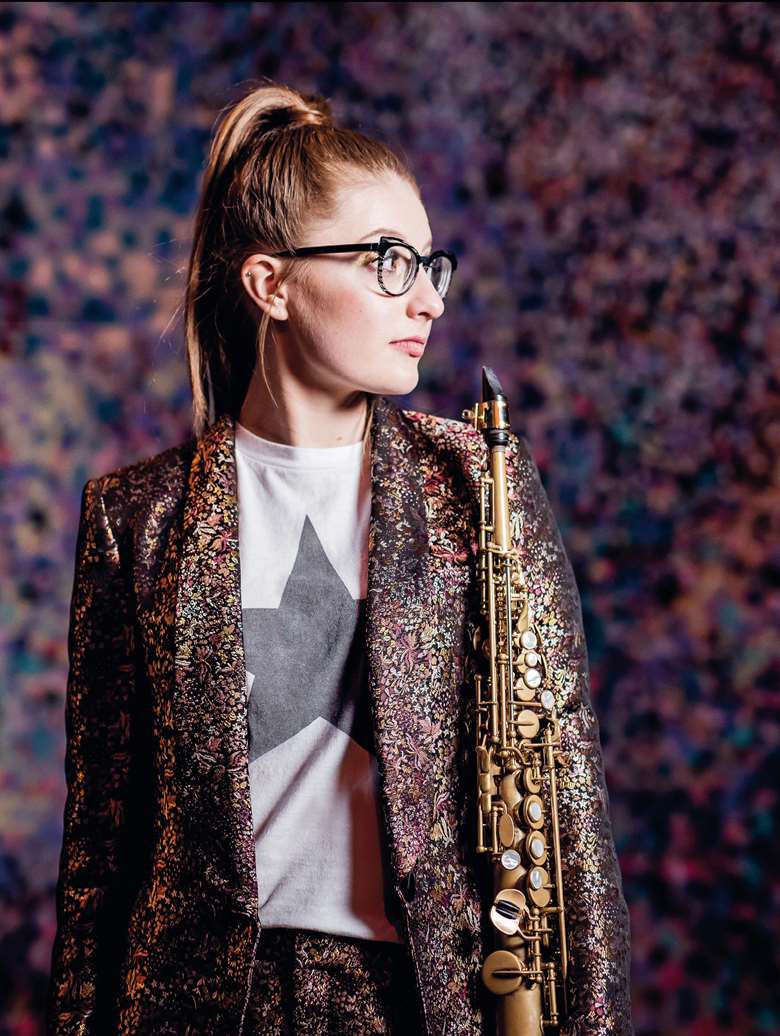
‘In lockdown I started cooking for the first time, semi-properly. I say “properly” – I mean actually spending some time making meals. I think there are quite a few similarities between music and the process of cooking, as it's something you can concentrate on and be totally immersed in.’ Speaking to Jess Gillam about her free time, it's quite easy to forget that this is the internationally successful saxophonist who has been awarded an MBE, has her own podcast and radio show, and has presented the BBC Proms live on television. ‘And, weirdly,’ she continues with her gentle Northern inflection, ‘I enjoy driving, because that's another time when you just have to focus on what you're doing. I don't necessarily do it for fun – it's usually to a concert – but I love it; or spending time with friends, or being in the outdoors, and all the usual boring things.’
It goes without saying, of course, that Gillam's life is far from boring. Although, like the other young, highly successful musicians I've met recently, this 23-year-old from Cumbria remains humble and firmly grounded. ‘I've been one of the fortunate musicians who's still been able to hold onto quite a lot of the dates that were in the diary because they've happened to work out logistically,’ says Gillam, when I comment on her busy lockdown schedule. ‘I've been really lucky to be able to perform a lot and to play with other people again, which I feel very fortunate about because not everybody has had that.’
Her classical life
The first saxophonist to reach the final of BBC Young Musician in 2016, Gillam is also the first sax player to have been signed to Decca Classics, releasing her second album TIME in September 2020. Some of her other achievements over the past 19 months include three instalments of her Virtual Scratch Orchestra for musicians of all ages around the world, several appearances at the Royal Albert Hall, an album tour, a presenting slot at the BBC Proms, and a continued role as the host of her radio show and podcast on BBC Radio 3 called ‘This Classical Life’.
Gillam's take on her own ‘classical life’ is varied, to say the least, although the portfolio career she now finds herself managing wasn't always on her radar. ‘I hadn't really realised the possibilities that came with studying music, and it's really interesting to see where those skills that you learn as a musician can then be deployed,’ she says. ‘When you're learning music in the music education system, having an array of experiences is really important, I think. It's great to see new schemes where young people can try and programme a concert, write the programme notes, and think about what you might call the “business” side of music – it's an incredible ecosystem and there are so many parts to it, and I think it would be great for us to try and make that more known to young people.’
Formative years
Gillam didn't begin her musical journey at school, although she was primary-school age when she first picked up a saxophone. ‘I started in a community carnival centre – the Barracudas Carnival Arts Centre – and there were lots of different workshops available, from percussion to stilt-walking. I tried everything and was terrible, so I came to the saxophone last and was really lucky, in hindsight, to make a sound on the instrument straight away.’ Gillam continues: ‘It's still really vivid in my mind – there was something about that moment of just being magnetised by the magic of there suddenly being this huge sound and it was coming out of this weird tube of piping, metal and wood.’
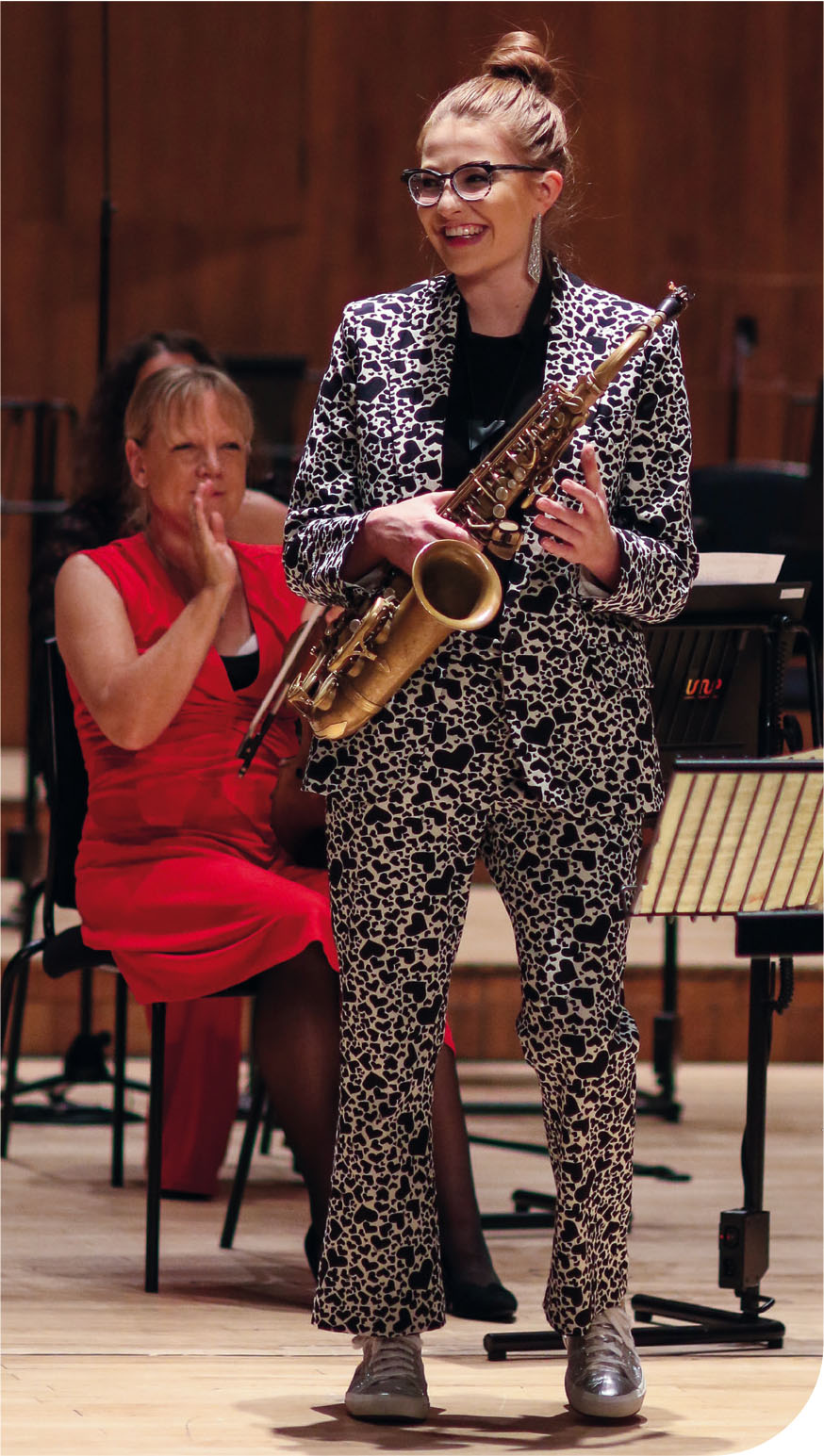
As she talks about her early music making experiences – before she began more ‘formal’ lessons through a scheme that saw primary children taught by students at the local high school for £2 a week – Gillam emphasises the communal aspect of this formative musical exposure. Music, to her, was about coming together, sharing the joy of music, and communicating non-verbally through sound. ‘My route in was about a lot more than technical precision, or technique, even. It was about what music can do for people,’ Gillam adds.
She did music exams ‘sporadically’ and now feels saddened by the number of people who give up an instrument because they fail an exam. ‘One of the most beautiful things about music is that it's almost impossible to fail,’ she says. ‘Of course, we want to play the right notes, but we can play something with a particular intent, we can learn from it, and it can be a place in which it's okay to make mistakes. I don't know how well an exam can encourage that side of things.’
The young saxophonist went on to study at the Junior Royal Northern College of Music on Saturdays, and then the Royal Northern College of Music (RNCM), although she left before finishing her degree. Partly in lockdown and partly in person, Gillam completed a master's with professor John Harle at Guildhall: ‘He was an amazing teacher to learn from, and an inspiring and kind teacher to have, so that was brilliant,’ she adds. Gillam is also full of praise for the head of Junior RNCM, Karen Humphreys, who she describes as ‘an incredible educator and person’, who can ‘just see what route and what set of experiences are right for each young musician’. She goes on: ‘I was really fortunate to meet her when I was 13 – she's been quite key in my development since then.’
Meaningful experiences
Although only in her early twenties herself, much of Gillam's work has music education and opportunities for young people at its core. She's a patron of Awards for Young Musicians and an ambassador for the London Music Fund, and most recently, she has worked with the London Mozart Players (LMP) to create a learning resource as part of their ‘Spotlight On…Education’ series. Five of the videos feature Gillam, and there are five with Sheku Kanneh-Mason (cello), Isata Kanneh-Mason (piano), and Leia Zhu (violin) respectively. The free-to-access resource films are tailored for KS1, KS2, KS3, GCSE and A Level and include clips of the musicians performing with the LMP. ‘The videos show some of the backstage content so that the students can see how it works and how it feels to be part of a concert as a musician, which I think is an interesting insight,’ says Gillam, whose films will be available from December.
I ask Gillam whether she feels that, as a young professional musician, she has a responsibility to proactively engage with work that is widening access to music. ‘I definitely feel a sense of responsibility to try and make sure that the opportunities to access music are in place.’ She thinks for a moment, then says: ‘It is a sense of duty, because I know how much I've benefited from it and how much that seemingly simple experience of picking up a saxophone changed my entire life. The funding has been cut to all of my routes into music, which is quite devastating to see. Even if I wasn't a professional musician, I know that if I hadn't had these opportunities, I wouldn't have learned those interpersonal skills, perspectives, and ideas – all of those things that we know music can do.’
Although projects and resources are a brilliant and much needed start, Gillam feels that her work must go further: ‘I'm really passionate about trying to make sure that those opportunities remain, and that they're meaningful experiences for young people. It's great if we can go into a school and play to young people, but then if there isn't a meaningful system in place and a valid path they could take, it feels criminal to excite them about the prospect.’ Gillam adds that she wishes she had some teaching expertise: ‘That's missing from our training – knowing what engages young people and how we can meaningfully inspire them. You asked me if I could change anything about my education, and that's something I wish I'd exposed myself to more.’
This seems like a heavy weight on young shoulders, and, momentarily forgetting that I'm speaking to an international saxophonist rather than a friend, I try to reassure Gillam that, from where I'm standing, she's already doing much more than most to inspire and engage future generations. Her admirable desire to reach out to young people clearly comes from wanting others to experience what she has: ‘It's like discovering a whole new set of possibilities when you get involved in music – you start to look at things and learn from people in a different way.’
Gillam continues: ‘In the world that we're in, we really need creative ways of looking at things, and we really need people who can thinking outside of the box. We need people who have empathy, we need people who have kindness, and I think a good music education can foster that. And I think that the magic of and exposure to the right kinds of live music at a young age can help us try and achieve a society of empathetic people.’ This is the real crux, and Gillam has put it better than most.
